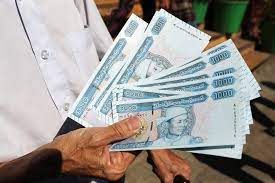FATF Blacklists Myanmar for “Strategic Deficiencies” in Money Laundering and Terrorist Financing Infrastructure

Alexander Cotoia, Regulatory Manager and Senior Consultant at The Volkov Law Group PC, rejoins us for a posting on Myanmar AML risks. Alex can be reached at [email protected].
On October 21, 2022, the global Financial Action Task Force (“FATF”) added the nation of Myanmar to its so-called “blacklist” of jurisdictions with “strategic deficiencies” in their legal and regulatory regimes that permit illicit financial activity such as money laundering and terrorist financing to occur largely unabated. Long-targeted by FATF as a potential haven for illegal financial activity, Myanmar had previously committed to address systemic problems with its money laundering infrastructure in the context of an action plan that expired in September 2021.

As noted in a 2018 FATF report, although “most relevant authorities [in Myanmar] demonstrate[d] a reasonable understanding of [Terrorist Financing] risks,” the same authorities failed to appreciate Myanmar’s “much more serious [Money Laundering] risks.” Specifically, the 2018 report criticized Myanmar for its failure to prioritize money laundering investigations, pursue and confiscate the proceeds and instrumentalities of crime, implement a system for adequate supervision of Designated Non-Financial Businesses and Professions (“DNFBPs”), and improve its capacity to deter illicit financial activity by engaging with the international community. The 2018 report also criticized Myanmar for considerable weaknesses related to the availability of basic beneficial ownership information. While noting that the risks emanating from the “misuse of legal persons and arrangements” in Myanmar appeared to be low, the report nonetheless highlighted the need for Myanmar to improve the availability and accuracy of information concerning companies registered to conduct business in that jurisdiction. In a similar vein, the 2018 report also noted the complete absence of a statutory requirement for companies to maintain beneficial ownership information independent of information furnished to financial institutions.
Although Myanmar has made some gains in combating illicit finance since the issuance of the 2018 report, a June 2022 FATF update concluded that the pace of progress had been too slow. Notably, FATF concluded that Myanmar had failed to address “fundamental deficiencies” with respect to money laundering investigations, prosecutions, and asset confiscation. FATF consequently urged Myanmar to “swiftly complete” its agreed-upon action plan by October 2022 or risk being subject to enhanced due diligence of all business relations and transactions implicating Myanmar.
FATF is largely recognized as the world’s preeminent global money laundering and terrorist financing watchdog. Among other things, FATF has developed a comprehensive set of standards that, when adopted, enhance the integrity of the financial system by enabling global governments to take coordinated action against illicit financial activity. FATF works closely with governmental entities in jurisdictions with emerging anti-money laundering capabilities to align their practices and protocols with international standards. As is the case with Myanmar, FATF also maintains a list of jurisdictions subject to heightened scrutiny for inadequate financial crime prevention measures.

While the FATF listing is not itself a bar to conducting business with entities tied to Myanmar, organizations are cautioned to exercise heightened diligence when partnering with enterprises based in that country. Among other things, businesses should solicit as much information as possible from a prospective counterparty concerning its complete beneficial ownership structure, principal officers and directors, and key executive personnel. Individuals with ties to the counterparty should be screened liberally against global government watchlists to ensure that the entity is not being used as a vehicle for money laundering, terrorist financing, or weapons proliferation purposes by a sanctioned or wanted individual. Additionally, businesses should request information concerning the recent legal and regulatory history of the counterparty in question to ascertain whether the entity itself poses a tangible third party risk to the contracting organization. Moreover, businesses entering into definitive agreements with entities based in Myanmar should rely on robust contractual covenants, representations, and warranties to ensure that the counterparty complies with all relevant laws and regulations.
















1 Response
[…] Source link […]